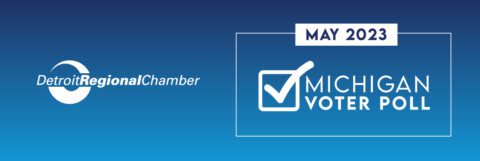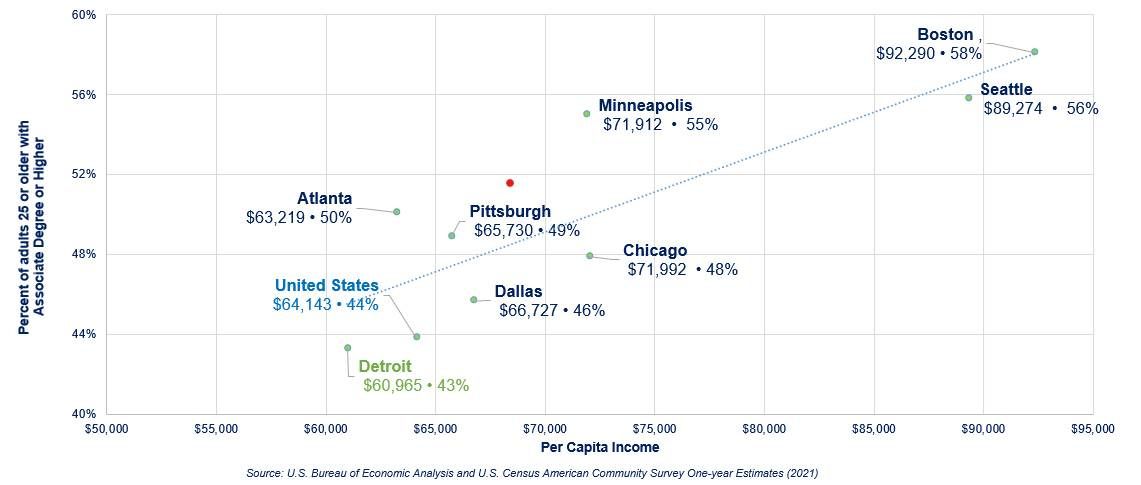Optimism About the Future
The majority of Michigan voters are optimistic about the state’s and their own personal future:
65% are optimistic regarding Michigan’s future. 72% are optimistic regarding their own future.
But…
17% of Michigan voters would consider leaving Michigan.
Preparing for the Work Demands of the Future
Michigan voters with a high school diploma are open to two years of additional training (e.g., skilled trade, associate degree) for a better paying job (22% salary increase).
63% of high school graduates are open to two additional years of education or training to get a higher paying job. This number jumps to a remarkable 90% for those aged 18-29 if the education or training was made no-cost.
Additionally, Michigan voters support financial assistance to citizens to earn a skilled trade or associate degree.
80% of Michigan voters support state financial aid for two additional years of education or training after high school.*
These positive indications of interest in postsecondary education by Michiganders are encouraging as our businesses and economy demand higher skills in the workplace. However, these positive signs are contradicted by skepticism around the value of postsecondary education.
Only 8% of Michigan voters consider a four-year college degree to be the minimum level of education needed to be successful in Michigan.*
Only 27% of Michigan voters say a college education is very important to landing a successful job in Michigan.*
36% of Michigan voters consider a high school diploma to be the minimum level of education needed to be successful in Michigan.*
*February 2023 Detroit Regional Chamber Michigan Voter Poll
Are We Embracing Future Technology Like Our Grandparents Did?
As Michigan positions itself to be a leader in the growing electrification future, a surprising percentage of Michigan voters are skeptical of the auto industry’s shift from internal combustion engines (ICE) to electrification (EV).
According to the Chamber’s February 2023 poll, 18% of voters believe automotive companies are moving to EVs because of customer demand or market forces.* The balance believes it is due to pressure from environmentalists and/or government forces. 34% would consider an EV as their next vehicle* – below the rates seen in other areas of the nation and certainly the world.
*February 2023 Detroit Regional Chamber Michigan Voter Poll
Reality Check: EV Demand Forecast
35% U.S. new cars sales by 2035 (KMPG, February 2023)
50% Global new car sales by 2035 (Goldman Sachs, February 2023)



